The Curator: a neo-gothic, the uncanny, and lots of speculation
everything I read in March, including my favorite Substacks of the month
At the start of the year, I described my desire to chase minor interests into oblivion. With these March reads, I’ve carried the torch for witchy/uncanny stories, Nordic writers, crime, and speculative fiction with a dystopian bent. I challenged myself to finish a novel I started years ago (Witching) and two that have been on my TBR for an embarrassingly long time (River and Greenwood). Three were on my 25 in 2025 list that my outie shared but my innie never did here (rude?)1. A very solid month!
White is for Witching by Helen Oyeyemi
Witching is about the Silver family who lives in an old generational home turned bed & breakfast, haunted by something unseen. Miranda suffers from pica, an eating disorder where she eats non-food items such as spatulas and chalk. Her twin brother Eliot struggles in general when Miranda’s illness spikes after the death of their mother. The house thrives through it all, reaching to claim Miranda as it has three generations of Silver women before her. When Miranda brings a college friend home, things really ratchet up as Miranda shrinks into a literal and figurative ghost.
Easy to see the solution when you’re not in the story, isn’t it.
I appreciated the racial and class tensions happening in this neo-gothic. The gothic genre’s origins are heavily Eurocentric, often focused on wealthy (or once wealthy) families like in Rebecca or We Have Always Lived in the Castle. The Silver family, white-skinned English, is struggling to stay afloat and somehow completely blind to the unseen spirits that surround them. It is the outsiders who instantly see through this hellish portal - the Nigerian maid and the Nigerian college best friend, one who practices voodoo to stave off spirits, the other who simply runs and never looks back.
It all sounds spooky as hell, right? My major issue with the text is that it wasn’t actually that spooky; more uncomfortable and disturbing. I attribute this to the dry prose, strange similes, and a slightly - boring? - narrator. The best parts were the house interludes and descriptions of Miranda withering away. I liked it but would have appreciated more emotional connection or even more paranormal activity. Oyeyemi is a prolific writer, and even though this wasn’t a massive hit, there is potential here. I see very little love for her in the book world, and that makes me sad. Go read an Oyeyemi novel and report back ok!
The vibes👻: unsettling neo-gothic that explores mental illness in a very creepy way
Long Bright River by Liz Moore
Liz Moore can do. no. wrong.
As I proclaimed last week, this book had me in an absolute chokehold death grip. It is about two sisters growing up in the rough parts of Philly; Mickey becomes a cop, while Kacey falls into drugs and sex work. Both women are troubled by their pasts because that is how these things go. It is quietly sad, melancholy, but hopeful. The story highlights how the opioid crisis affects us all, not just those who directly fall into its trap. It’s about relationships as much as it’s about crime.
Thomas’s little face is lit up with pleasure and excitement, his hands moving quickly over the table to touch his Big Mac, and then his french fries, and then his shake. He is counting his winnings. He is having a happy birthday.
The difference between a Moore crimer2 and almost everybody else is that she gets the basics absolutely correct. Strong writing, strong sense of character, a plot that makes sense and grips you from beginning to end, with relationships and social commentary peppered in at just the right heat level. Trope-ists and poor writers have somehow perverted this simple formula, but Liz gives us something to hold onto in the crime genre once again3. Highly recommend.
The vibes👻: gritty family-centered crime drama that speeds along faster than a drug trip
Don’t Look Now by Daphne du Maurier
I am not a short story kind of gal. I am a Daphne du Maurier kind of gal, though, and this collection of nine weird, uncanny, suspicious stories was brilliant.
Qualities of a perfect short story/ story collection
Immediate strong start. Straight out from the first sentence we want to be hooked, intrigued, gaslit, lured in, strung along.
Build it up. Make me so invested I can’t turn away. Give me enough breadcrumbs that I see where we’ve been but not where we are going.
Do me dirty with that ending. Force me to imagine what happens after the words end on the page. Shock me, make me question myself and what my mama gave me.
The stories have connective tissue - similar themes, occurrences, issues - but not so similar as to be predictable.
Bonus points for uncanny, supernatural, inexplicable, weird, or mysterious goings-on. Neat and tidy endings are not required nor desired.
The most famous story is “The Birds,” the basis for the Hitchcock movie of the same name. What I love about the story, in contrast to the film, is the “us vs. them” mentality of a family deeply connected to the earth as provider and survival instincts. But my favorite opening comes from the last story, “Monte Verita.” It is a perfect representative sample of the brilliance of du Maurier’s writing:
They told me afterwards they had found nothing. No trace of anyone, living or dead. Maddened by anger, and I believe by fear, they had succeeded at last in breaking into those forbidden walls, dreaded and shunned through countless years--to be met by silence. Frustrated, bewildered, frightened, driven to fury at the sight of those empty cells, that bare court, the valley people resorted to the primitive methods that have served so many peasants through so many centuries: fire and destruction.
The vibes👻: Just look at the cover of this novel it tells you all you need to know
Greenwood by Michael Christie
Greenwood is a novel of dissection and layers. The history of the Greenwood family, from 1908 to 2038, is a tale of trees, suffering, and exploitation. The family suffers through mass casualty events, droughts, deforestation, depression, war - I mean, you name it, they’ve got the affliction. Christie shows us the end and then the heart of how we got there and back again, which is a compelling narrative structure. What can we blame on generational trauma? What can we blame on those who came before us? Is each generation doomed to repeat or react? Can we fix the mistakes, or is it too late (especially for planet Earth)?
While I very much enjoyed the reading experience - the story was incredibly juicy - Greenwood made me question the idea of story satisfaction. I don’t think we need to agree with a character’s choice or a narrative one as long as we are able to draw a nexus from that decision to some core motivation or tenant. What puzzles me about Christie’s novel is why did everyone choose suffering? Like actively chose it over a personally less noble but ultimately more effective option… when they perhaps had the chance to reverse the effects of climate change or be masters of their own fate…? I was not satisfied that some of the characters would have made the choices they did. Regardless, I very much liked this book and would gladly read another Christie in the future.
The vibes👻: tree huggers that need validation, family drama that never stops, a new appreciation for the miracle of trees
On the Calculation of Volume I by Solvej Balle
Grief. Ghosts. Expansion. Shrinkage. The pandemic? A shadow system. A non-system? An artifact. A monster. A writer who will never be published. Futility and hope. Days piled up like gifts. Always the same unless you go somewhere different. Clouds, skies, stars, rain, sun.
There is someone in the house.
I leave the day open.
//
There you read it. How do you feel? I feel claustrophobic.
Calculation is 161 slim pages. Yet I wrote more notes in my common book about it than any other this month. As Tara slips through time, living the 18th of November over and over again, she moves through stages of grief or rationality or even agency - how much Tara will engage with the world depends on what she has tried thus far. Her husband Thomas is at home, living the exact same day unless Tara intervenes. She belongs but she does not belong. She is alone.
On the surface perhaps it’s about the mundanity of modern life, the endless loop of marriage, of work, of existence. I also felt it was about art and the artist and the futility of uniqueness, or art as the only way to live beyond your physical life. Tara is writing her own story within the story, keeping a diary to mark time as it exists only in her consciousness. This is volume one of seven, so might her physical story be the only thing that survives through time beyond the 18th of November? We will see.
And while we’re here - what even is time? Is time the changing of the seasons? Is it a memory of events? Is it people doing something different than they did yesterday? I love thinking about the construct of time. I sometimes feel akin to a congenitally blind or deaf person, believing there is another sense I don’t have privy to that is just beyond my rationality. A sense that understands time and space as non-linear. Where a black hole is simply another element of the known world. Where time is a crushed-up slinky4. Time is taping over a used VHS. The ghosts float beyond time while the monsters eat time like the Langoliers5. Tara wanders the halls of her own time labyrinth like a House of Leaves6.
It was only time that had fallen apart.
I can’t help but compare Calculation to Orbital, both temporal novels that explore what it means to live outside of time. Orbital is a quiet transcendence, whereas Calculation is a slow disappearance. Where Orbital manifests wonder, Calculation fears erasure. Where Orbital deals in distance, Calculation deals in layers. I can’t say which is superior because while Orbital was an instant infatuation, and I hated moments reading Calculation, in the process of writing this review, I have come to love and admire it in new ways. This novel stretched me, tortured me, and ultimately gave me the gift of imagination.
Edit: My good book friend Mike at
buddy read Calculation together, but a whole lot of us unknowingly buddy read this together. Here are some other superb reviews:Mike
: caught in eternity and I was slowly but surely moving toward my grave- ’s brilliant connection to her own health struggles in March Reads
- considers Technical brilliance vs. emotional connection
- on the time loop of our lives
The vibes👻: just be prepared to love hate this novel - it’s only 161 pages you can do it.
👻Favorite read of the month: Don’t Look Now
👻Most mind-bending: On the Calculation of Volume I
I love watching Petya discover what type of books set her soul on fire, especially being on a similar journey myself.
EJ has gotten us all to admit the ways we struggle with (or hate) audiobooks.
While I don’t wish a crisis upon anyone, I will take a good POV crisis, especially from Sara.
I turn to Marion for opinions on anything from culture to politics, including her take on the new Senate filibuster king.
🎧My best friend Heather finally got me to listen to the Las Culturistas podcast. Bowen Yang (SNL) and Matt Rogers (comedian) are equal parts sweet and sassy and they pull high-quality guests (Lade-y GaGA!). I recommend it wholeheartedly.
📽️The White Lotus Season 3 is my favorite thing to talk about, mostly because of its portrayal of adult female relationships. Mike White is a genius at interpersonal drama.
🛒HERETIC PARFUM NOSFERATU. I don’t particularly like merch, but this Eau de Macabre is WILD. If you’ve ever wanted to smell like lilac, ambergris, and dirt with a hint of blood just freaking go for it (I also love Scandalwood and Dirty Coconut). I recommend a customized sampler before committing to a scent.
now a poll 🤓
good day, book friends, old and new. thou mayst begin to mark some alterations round about here at ye old Subverse, for I am feeling ill confined by my self-imposed rules. fret not, for change is most wondrous. help me by answering this poll. cheers! 👻
and cats🐈⬛
anticipation
Have you read any of the books I’ve mentioned? Thoughts?
What is time?
What are you reading currently, and is it any good?
The Curator: a steady diet of female literature
If there has ever been a time to celebrate and venerate women, it is now. I often think about my Reading Origin Story, or all the past iterations of Me, and what I was reading at each moment. I find I am deeply indebted to the contemporary female authors who, in my late 20s/early 30s, reminded me that I had a brain and it deserved to be used for somethi…
The Curator: everything I read in February
I feel like I have lived eight lifetimes since January 20th, so it’s delightful that I have been able to read anything, much less finish five books this month. I have passed the disassociation stage of grief, through the comfort TV period, and am now onto the rage and action bit, which somehow includes reading.
The Curator: where I get my book recs
It’s easy to find book recommendations. What is not easy is finding good book recommendations from trusted sources that vibe with your own taste. My most treasured form of book discovery is haunting the shelves of a bookstore, particularly Borders circa 1999, but the interwebs will also do.
This newsletter contains affiliate links. If you purchase using one of the links above, I will earn a baby-sized commission at no cost to you. Comment, share, repost, upgrade to paid, or buy me a coffee to support my work. Follow me @subversereads on Instagram for pretty book pictures. Your support (monetary or not) is why I keep going, so thank you.
See you around the bookshelf!
I think this is the one! crimer = crime thriller
we attempted to watch the show but were not fans of the changes from the jump, mostly the Donnie the Quiz Kid vibes. May have to give it another shot later.
Stephen King’s 1990 classic story from Four Past Midnight.
House of Leaves by Mark Z. Danielewski


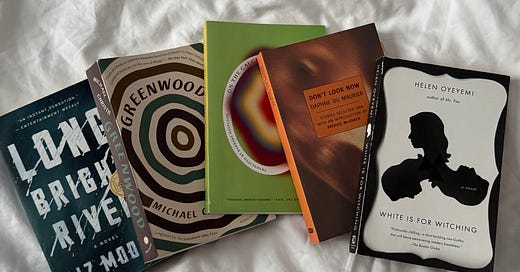


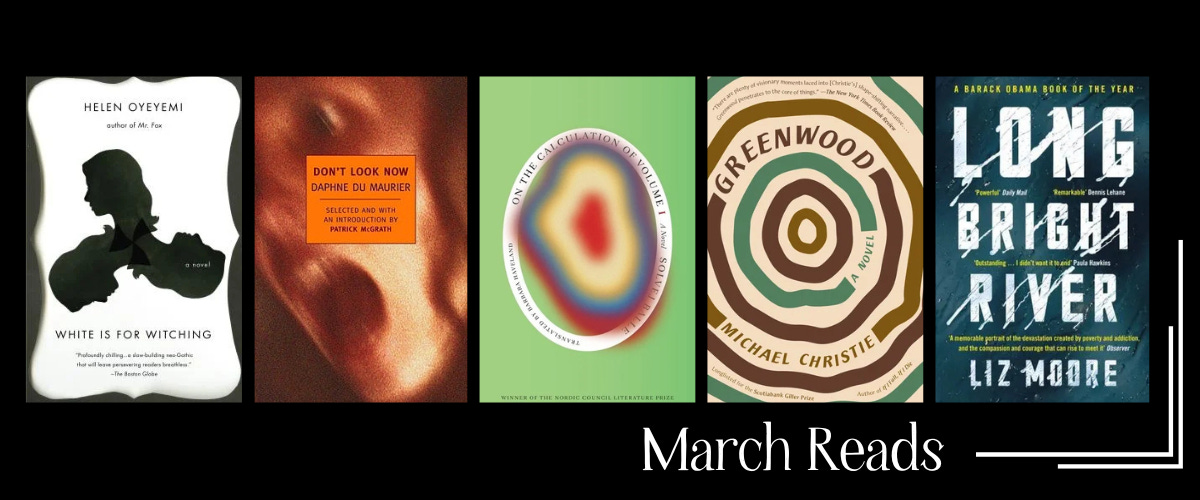
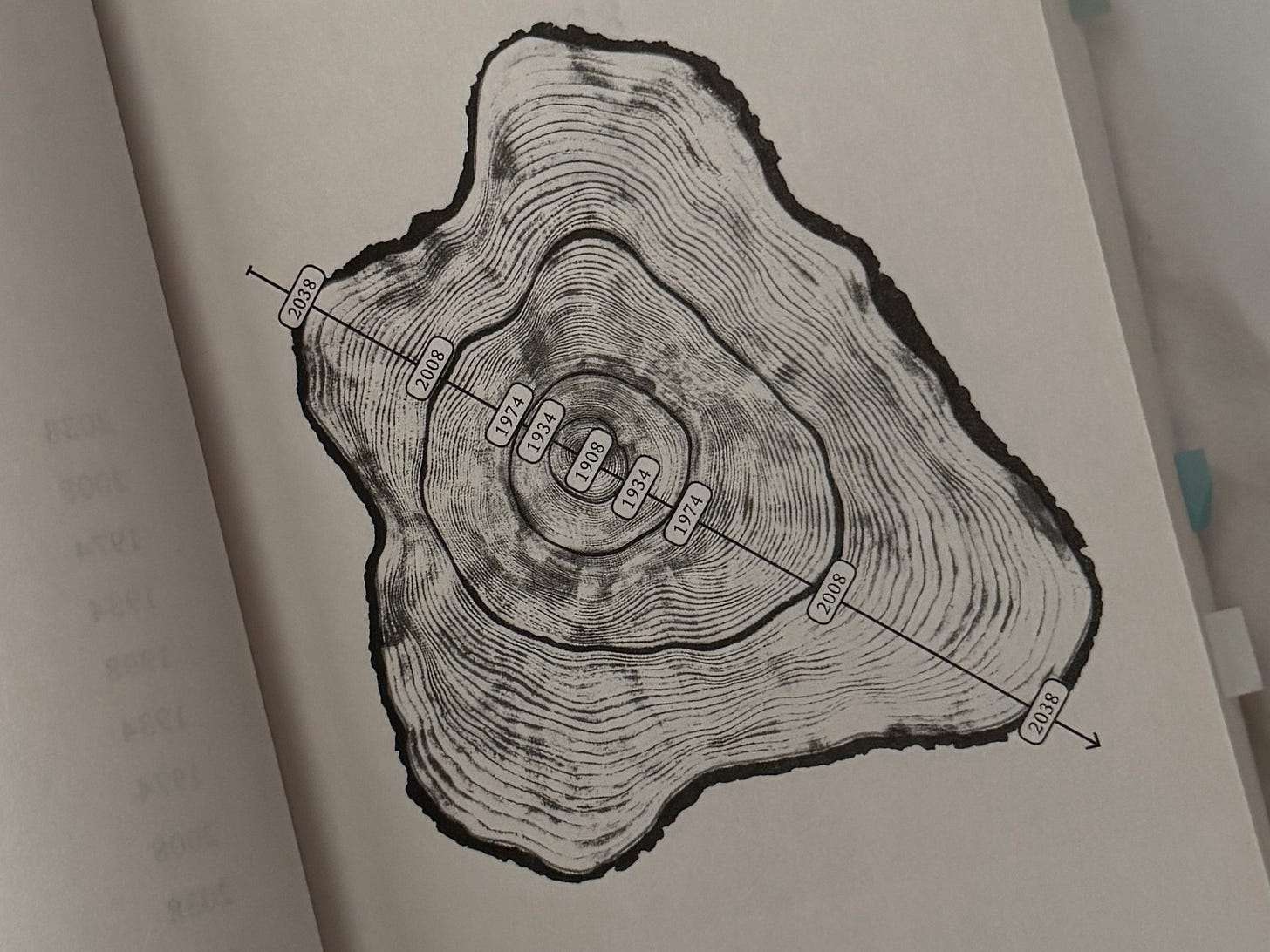




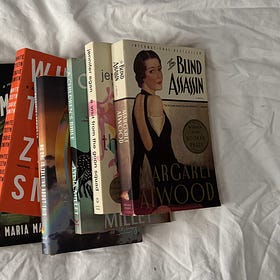
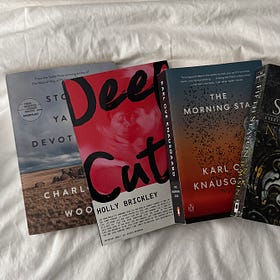
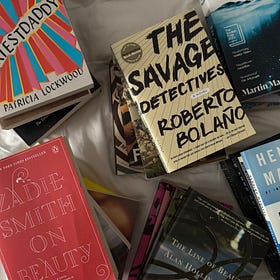


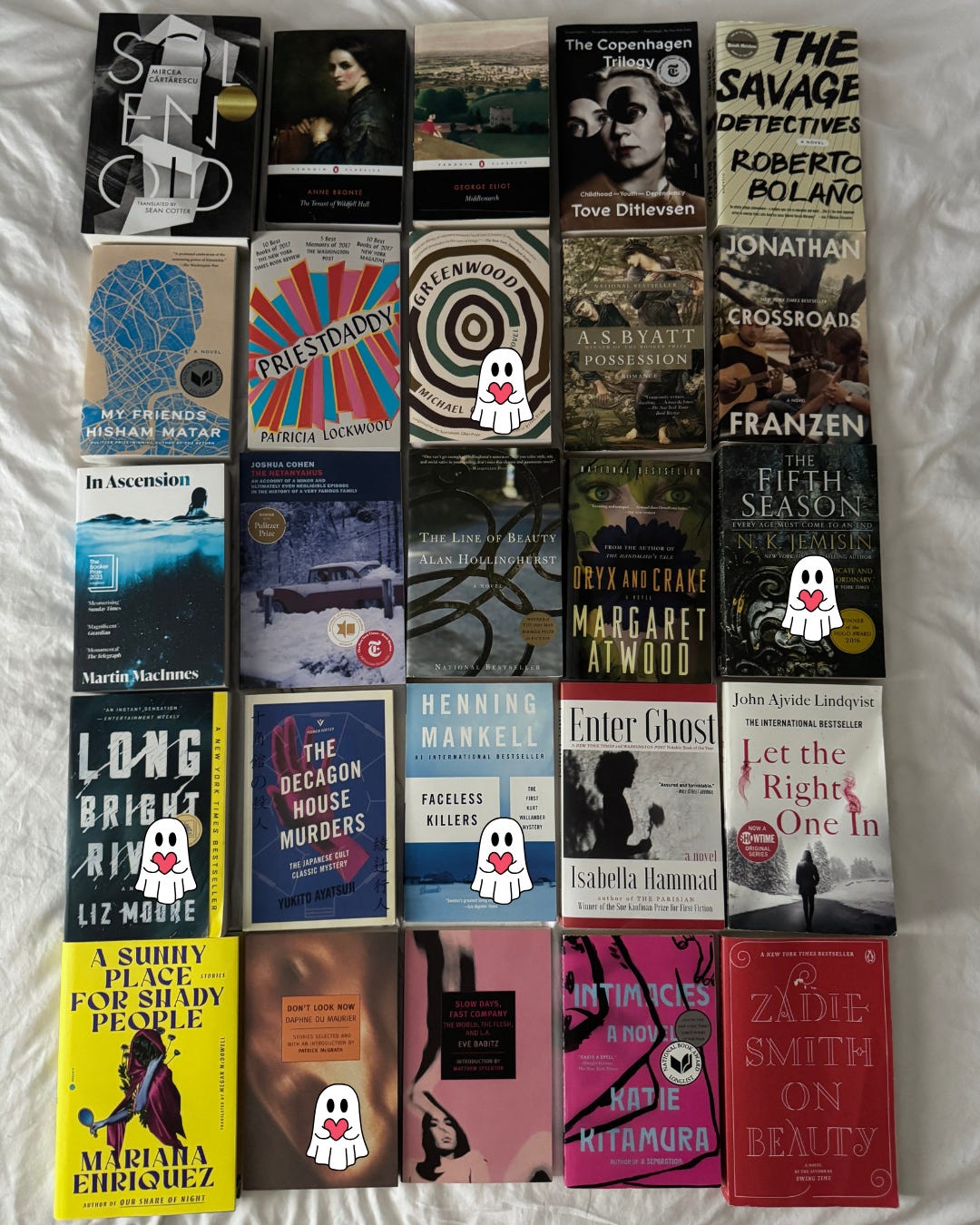
I need to ream d more Liz Moore!
Welp, Long Bright River just jumped from “want” to “need”. Sorry, wallet.